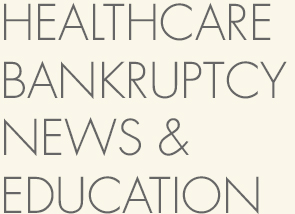Most Personal Bankruptcies are Due to Medical Bills
Based on a Harvard University study, nearly 60 percent of those that declare personal bankruptcy, do so because of medical bills. Filing for bankruptcy usually comes after a patient will max out their credit cards, and in many instances, taking out a mortgage on their house.
Many patients are unaware of the fact that many different procedures and medications are not covered by their health insurance. This is often the case even with patients who have expensive secondary health insurances. One of the big causes of bills that aren’t covered by the insurance companies is when someone contracts a devastating illness. Though at the beginning many treatments are indeed covered, many tangential costs are added to a patient’s recovery that may have limited or no connection to the insurer. This very often leads to patients declaring bankruptcy.
Personal Bankruptcy is a Growing Epidemic
For thousands of consumers, personal bankruptcy can be one the most debilitating things. A person may feel that there is no way that they’ll be able to get back on their feet. In truth however, if you employ the right tactics to regain a better credit record, you may be surprised at how fast you can start being approved for loans and credit cards again.
The average number of years it takes to wipe a personal bankruptcy off one’s record is 7-10 years. That does not mean that one can’t get a loan before that time. If someone is able to demonstrate to lenders that they can handle debt in a more responsible fashion, many options are open to them. This will help for all different types of loans such as car loans, mortgages and credit cards.
Important Credit Score Information
As with every application for a loan, a routine credit check is performed. This usually involves checking ones credit score. For someone to procure his or her credit report, it may cost money. However, there are several websites and banks that offer free credit reports.
If one’s score is over 600, there’s a very legitimate chance of getting a small loan. If it’s below 600, you may want to try again in 6 months. Alternatively, you can apply for credit cards which are suited for people digging themselves out of bankruptcy and other causes for poor credit scores.
Great Tips to Stay Out of Bankruptcy
Though most people who end up getting out of personal bankruptcy issues will not have to file for bankruptcy again in their lives, there are still large numbers of people who aren’t so fortunate. Many will make the identical mistakes they made the first time around. Others will attempt new tricks that will return them to the exact hole in which they found themselves a few years earlier.
The following few tips may help people avoid returning to debt, or others who want to stay out for even the first time:
Do your research on health insurance companies. Try to pick the one that will be in your best interest when it comes to those rare situation with huge bills. Even if the premiums are higher, it will be worth it in the long run.
Keep your spending with your credit card as low as possible. Experts say if you spend under 30% of what you’re allowed to use on the card, this will make lenders feel you’re a responsible consumer.
Only take one credit card at first, and make sure to pay before the deadline. Future credit scores are dependent heavily on paying on time.



